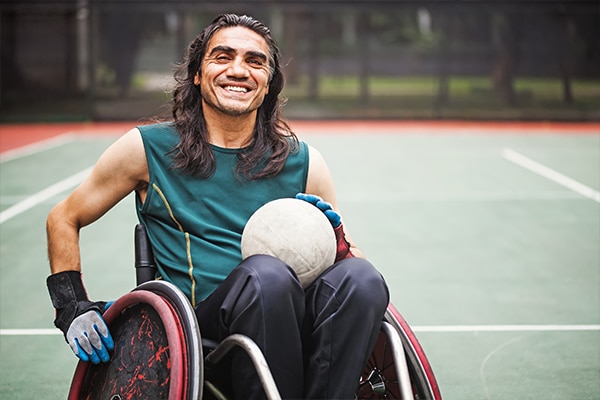Working With Disabled Persons

Be a Mirror
Reflect who people with disabilities are to themselves. Help them to really see themselves in reference to the world and how they see themselves operating in the world. Regardless of ability, being told “you can’t do that,” “you won’t be able to” or “you need help” takes a toll on the self-esteem, self-worth, and confidence of a person. We can empower others by helping disabled persons and future generations see themselves as a part of the larger community, instead of an isolated advocate.
Never Assume You Know if a Person has a Disability
Many disabilities, like autism, deafness, epilepsy and mental illness, are invisible. If you feel it appropriate, ask as respectfully as you can but never assume you know. The difficulty of people with invisible disabilities is that they often have to validate their disability while trying so hard not to be discriminated against because of it.
Educate Yourself
If you happen to know the disability of a person with whom you are working, take time to find information about the best ways to assist people with a particular health problem. There is a wealth of data available concerning any health issue or disability. Often, a national foundation that represents and advocates for a certain disability is the best place to garner details. Never assume to know facts if you aren’t certain. Most people with a disability will be open to any questions that you may have about their situation so long as they are presented with authenticity and respect.
Disability Etiquette
Disability etiquette can provide you with cultural nuances of specific disabilities and help you to treat individuals with dignity. There may be instances when a disabled person is rude despite your best efforts, just like some people without disabilities are. In that case, refer back to the first tip: Keep calm and just be a mirror.
